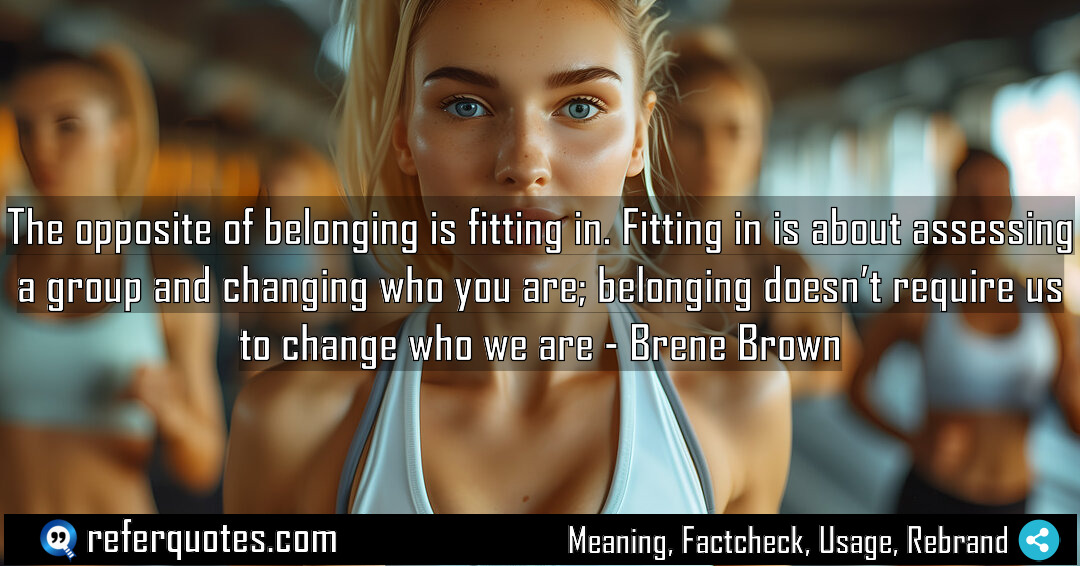You know, “The opposite of belonging is fitting in” really hits different when you’ve lived it. It’s that gut-punch realization that true connection isn’t about changing yourself to be accepted, but about finding spaces where you’re valued for exactly who you are. This is the core of authentic leadership and whole-hearted living.
Share Image Quote:Table of Contents
Meaning
At its heart, this quote draws a stark line between two ways of being in a group: one is an exhausting performance, and the other is a state of genuine, effortless connection.
Explanation
Let me break this down for you. I’ve seen this play out so many times in corporate teams and even in personal relationships. Fitting in is a strategy. It’s a constant, draining calculation. You’re scanning the room, figuring out the dress code, the jargon, the opinions you’re supposed to have, and then you contort yourself to match it. It’s armor. You’re essentially saying, “I hope you like the version of me I’m presenting.”
Belonging, though? That’s a completely different animal. It’s an outcome. It’s what happens when you have the courage to show up and be seen, not in spite of your quirks and vulnerabilities, but because of them. It’s not about them accepting you; it’s about you believing you are worthy of acceptance, exactly as you are. And let me tell you, the energy shift when a team moves from fitting in to belonging is palpable. The innovation, the honesty… it just explodes.
Quote Summary
| Context | Attributes |
|---|---|
| Original Language | English (3668) |
| Category | Life (320) |
| Topics | authenticity (101), belonging (37), identity (102) |
| Literary Style | affirmative (75), balanced (59), reflective (255) |
| Emotion / Mood | provocative (175) |
| Overall Quote Score | 90 (29) |
Origin & Factcheck
This wisdom comes straight from the research of Dr. Brené Brown. It was first published in her 2018 book, Dare to Lead: Brave Work. Tough Conversations. Whole Hearts., which came out in the United States. You sometimes see this idea floating around unattributed, but it’s 100% a core finding from her decades of studying vulnerability, courage, and shame.
Attribution Summary
| Context | Attributes |
|---|---|
| Author | Brene Brown (257) |
| Source Type | Book (4032) |
| Source/Book Name | Dare to Lead: Brave Work. Tough Conversations. Whole Hearts. (29) |
| Origin Timeperiod | 21st Century (1892) |
| Original Language | English (3668) |
| Authenticity | Verified (4032) |
Author Bio
Dr Brene Brown is the author of books such as Daring Greatly and The Power of Vulnerability. The TED talk and Netflix production based on her research reached out to millions of audience. She researches effects of courage and vulnerability in shaping people's work and relationships. She leads the Brené Brown Education and Research Group and provides evidence-based insights into practical tools to help people train themselves
Official Website |Facebook | X | Instagram | YouTube |
Where is this quotation located?
| Quotation | The opposite of belonging is fitting in. Fitting in is about assessing a group and changing who you are; belonging doesn’t require us to change who we are |
| Book Details | Publication Year/Date: 2018; ISBN/Unique Identifier: 9780399592522; Last Edition: Random House 2018; Number of Pages: 320 |
| Where is it? | Part III: Braving Trust, Approximate page from 2018 edition: 117 |
